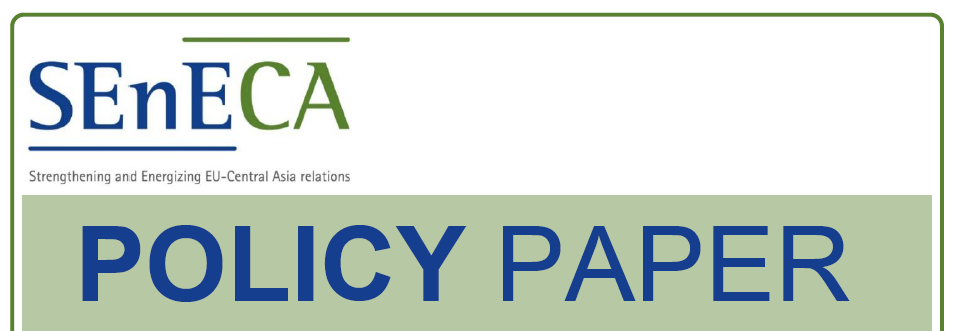Political and security relations - Analysis of the EU’s comparative advantages and Central Asian interests
This paper examines the EU’s comparative advantages and disadvantages in its political and security engagement with Central Asian countries. The EU’s and its member states’ political and security engagement with Central Asia has been restricted by regional rivalry between the countries, occasional mismatches in their political and security priorities, as well as the dominance of external powers. The EU’s main security priorities in Central Asia are counter-narcotics and counter-extremism measures, and some of the more successful EU programmes in the region have addressed specific issues such as drug addiction and border security.
However, the EU’s strategies to promote their ideas of democratisation and their anti-corruption agenda are often viewed by Central Asian countries as an attempt to exert regime change or influence the distribution of power, negatively impacting on how the EU is viewed in the region. Moreover, the EU’s Western understandings of how Central Asia’s domestic political environment works is also likely to restrict deeper cooperation between them. Most Central Asian countries have personalised, and centralised governments controlled by small groups of influential stakeholders, making it difficult for political outsiders to affect decision-making.
More broadly, there is a general lack of information in Central Asia about the EU’s intention towards the region, and locals can be mistrustful of the EU’s influence. This view, reinforced by the pervasive Russian-language and Russian state media, is likely preventing the EU from deeper engagement with Central Asian countries.
However, the EU’s strategies to promote their ideas of democratisation and their anti-corruption agenda are often viewed by Central Asian countries as an attempt to exert regime change or influence the distribution of power, negatively impacting on how the EU is viewed in the region. Moreover, the EU’s Western understandings of how Central Asia’s domestic political environment works is also likely to restrict deeper cooperation between them. Most Central Asian countries have personalised, and centralised governments controlled by small groups of influential stakeholders, making it difficult for political outsiders to affect decision-making.
More broadly, there is a general lack of information in Central Asia about the EU’s intention towards the region, and locals can be mistrustful of the EU’s influence. This view, reinforced by the pervasive Russian-language and Russian state media, is likely preventing the EU from deeper engagement with Central Asian countries.
Vorschau

Zitieren
Rechte
Nutzung und Vervielfältigung:
Dieses Werk kann unter einer Creative Commons Namensnennung - Nicht kommerziell 4.0 Lizenz (CC BY-NC 4.0)
Creative Commons Namensnennung - Nicht kommerziell 4.0 Lizenz (CC BY-NC 4.0)
genutzt werden.
